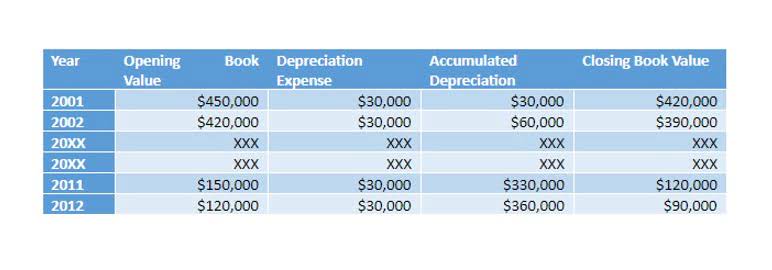
A recession is a period of decline in economic activity that can last anywhere from a couple of months to a few years. These businesses also have quite a bit of money in the bank, as 39.2% said they had at least three months of cash on hand for business operations. Finance and insurance businesses may not exactly be thriving as much as they are—relatively—unaffected by the events of 2020. Unemployment in August was relatively high, compared to some of the other top industries, at 12.4%. This is another industry that is intimately tied to the operations and success of other businesses.
- Government-mandated lockdowns, social distancing measures and COVID-19-related anxieties have seen footfall at traditional bricks-and-mortar stores dwindle down to record lows.
- With the U.S. business landscape radically changing in the past several months due to the coronavirus, the majority of stories people are seeing concern businesses that are closing, losing revenue and laying off workers.
- Suffice to say, most consumers deem these services as essential and will keep spending their money on them, rather than wait for better economic conditions.
- Rather than full-time staff, companies often hire high-quality freelance workers to meet their design and marketing needs remotely.
- As you bring more money into the business, you can add more products to your line, helping you scale more sustainably and with demand.
- In reality, pandemic planning is just a way to build resilience in your organization.
Profit Desert Customers
- Many companies won’t have the budget or need for a full-time assistant, but still have administrative tasks that need fulfilling.
- The e-learning industry is projected to grow from $197 billion in 2020 to $840.11 billion by 2030.
- While some industries (like tech-based businesses) have been able to adapt fairly easily, others have struggled.
- No matter the economic situation, people will always need to take care of their health.
- Although the vaccine is beginning to restore normalcy to everyday life, some lasting changes from this time, like remote work, online retail and home delivery services, will carry over into the post-pandemic world.
- As your reselling audience grows, you can specialize your business and start curating items for repeat buyers.
Before that we had the Great Recession of 2008, following the subprime mortgage economic crisis. It is interesting to note that the 12-year gap between these two major recessions was the longest period of continuous growth in the US since 1854. We pulled the questions and responses from this survey that we felt spoke the most to whether a business was performing well despite the pandemic over an eight-week period, from April 26 to June 27, 2020. Industries where the largest percentage of respondents selected the top-rated response were considered to be performing better than industries where smaller percentages chose the same. We then ranked each industry by what percentage of respondents selected the top-ranking response, and averaged their rankings across each question and answer.
- They immediately assumed that the problem was that they delivered daily to large retailers.
- We believe everyone should be able to make financial decisions with confidence.
- Businesses that help people socially distance themselves from others, retailers that enable people to eat and drink at home and health care services are primary examples.
- Remote work applications — whether it’s video chat, instant messaging, productivity, collaboration or other tools — have become important fixtures in the work-from-home landscape that has been accelerated by the pandemic.
- Understanding what makes a business recession-proof is invaluable, whether you’re looking to start something new or just see your current company through an economic downturn.
- There are plenty of areas of tech support expertise, from helping a client recover lost data to talking them through new software solutions.
- Students who thrive in a remote learning environment want to continue their online study sessions, and busy parents appreciate not having to drive their children to and from a tutoring center.
Online reseller

Several years ago, GE’s aircraft engine division had an insight that transformed its industry. In the past, the company had sold pandemic proof businesses engines, spare parts, and services largely on a standalone basis. Each segment was increasingly vulnerable to price competition from focused niche competitors. According to new research released by McKinsey & Company, digital interactions are now twice as meaningful as traditional sales.

Financial services

Even with a decreased disposable income, sweets offer an inexpensive (and delicious) dopamine spike. Compared to grocery stores, confectionary stores are a slightly different, but still very stable, recession-proof business option. Food delivery services are recession-proof—just like lipstick, they represent a small luxury that most people https://www.facebook.com/BooksTimeInc/ can indulge in.

Recession-Proof Business Ideas
Additionally, https://www.bookstime.com/articles/independent-contractor-tax-form small video game makers that work on creative titles for children are seeing an uptick in demand with many kids unable to attend school. With many bars closed around the United States due to COVID-19, local liquor and wine stores have dramatically increased sales. JD Phelps, store manager at New York City’s Vintage Grape Wines & Spirits, told Bloomberg that it’s been difficult to keep up with demand in the past few weeks with people wanting to stock up at home. Owners of drive-in theaters in California, Kansas, Oklahoma and Missouri all told the Los Angeles Times recently that business had increased in light of coronavirus. With all kinds of businesses creatively learning to adapt to coronavirus, it should come as no surprise that some traditional businesses have seen success in this new landscape as well.
